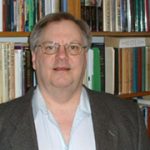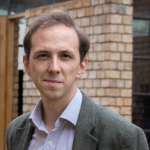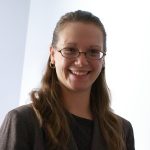Study old and new worlds, past and future worlds, real and unreal worlds.
Earn a graduate degree in imaginative literature.
Imagination is a wonderful thing. It allows us to build worlds and create futures, pasts, and alternate presents that can not only entertain and bring release, but can also help us understand our own world all the better.
Why Study Imaginative Literature?
Signum University is leading the way in the study of imaginative literature, including fantasy, science fiction, “weird fiction,” and other speculative stories. This concentration provides students with a solid grounding in a variety of imaginative stories, from myths and legends and pre-Tolkienian fantasy tales to modern sagas with sprawling worlds and technology-filled accounts of future and far-off societies. Imaginative Literature has literally no bounds and has the ability to lead readers (and writers) anywhere that the mind is capable of going.
Much of the literature studied in the courses offered in this concentration have been overlooked at best and at worst maligned by traditional academia and literati. Signum believes that imaginative literature includes some of the greatest – and oldest – stories ever told, showing that imagination is itself an important aspect of human culture and development.
Given the rapid changes occurring within today’s social, political, and cultural spheres, imaginative literature can give us the tools to explore ideas, both new and old, in ways that are otherwise impossible in the mundane world. Imaginative literature allows us to test out diverse philosophies, economic systems, social structures, and other “Big Ideas,” seeing how they could be implemented or adapted to our own situations, writ large or small.
Throughout history imaginative literature has offered an ongoing conversation – the history of which Dr. Amy H. Sturgis explores in her two-part Science Fiction course – giving authors, readers, scholars, and anyone else who wants to engage an opportunity to build on concepts and introduce their own alternate solutions to complex problems and interpretations of answers to age-old questions. The Imaginative Literature concentration at Signum University gives students a fresh, disciplined way of entering into this conversation to make their own contributions.

Out-of-this-World Scholarship
Signum University offers a whole new way of approaching science fiction, fantasy, and other speculative fiction as a discipline. As part of our premier degree program, the M.A. in Language & Literature, this concentration in Imaginative Literature offers students a great opportunity to study other worlds and ideas and apply them to real-world issues.
For those who are not ready to commit to a full M.A. program, you can also enroll in our Certificate Program or sit in on Imaginative Literature courses as an auditor.
Imaginative Literature Courses
Currently, Signum University offers eleven courses for the Imaginative Literature concentration. Students seeking a M.A. or Certificate with a concentration in Imaginative Literature must take at least five of these courses.
At least one Imaginative Literature course will be offered each semester. Courses will be offered on a rotating basis every 2 – 3 years. Course order, frequency, and availability may change without notice. Links to course descriptions above may go to an older version of the course. For current course offerings, visit the Signum course catalog.
Questions?
Contact Us!
If you have any questions about a concentration in Imaginative Literature or becoming a student, contact us.









